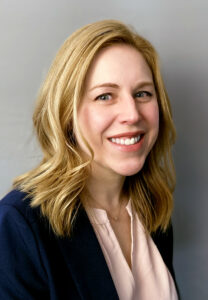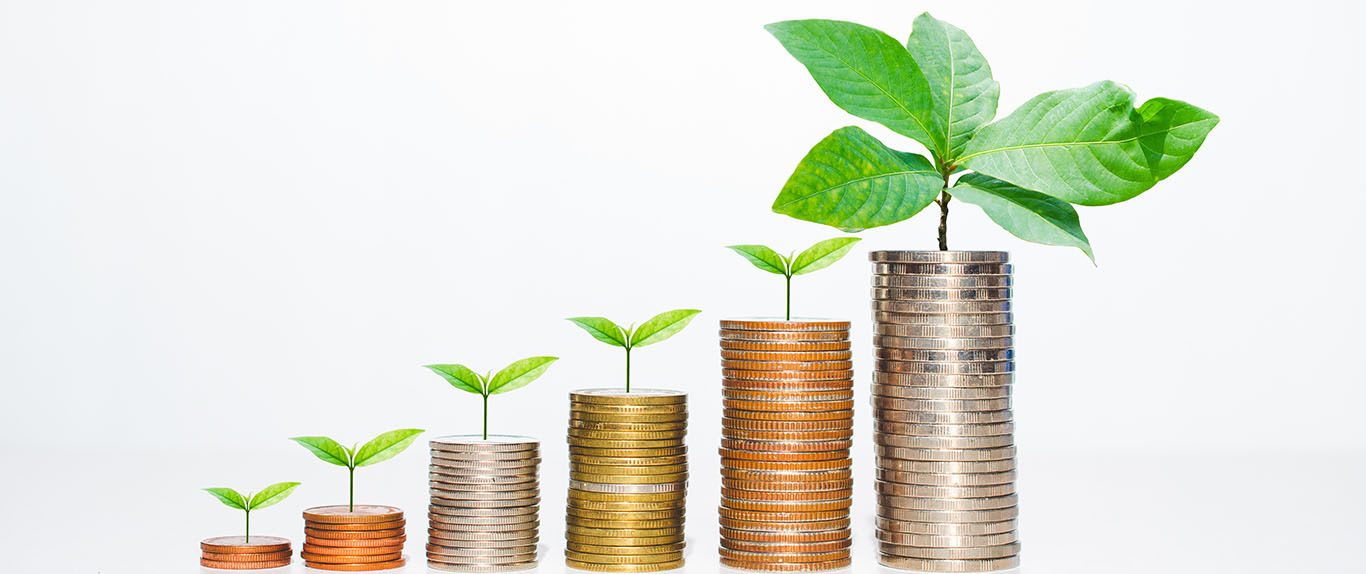 While sustainability concepts are rooted in science, you don’t have to be a scientist to excel in the Master of Science in Sustainable Management program.
While sustainability concepts are rooted in science, you don’t have to be a scientist to excel in the Master of Science in Sustainable Management program.
Erin Bauer, a product development manager at a nonprofit trade association, was one of a few students in her class with a career path that wasn’t focused on hard science. Rather, she’s focused on quality and corporate social responsibility, after years of experience in business and retail. Erin graduated with her Master of Science in Sustainable Management this past May through UW-Superior and says her business experience is actually what gave her an advantage in the program.
Originally, she had sought out an MBA since her undergraduate degrees are in marketing and business administration, and she has more than two decades of experience in business and retail.
“When I started looking into [MBAs], I felt it was redundant of what I already do and have degrees in. I was in retail for quite a long time, and that’s when I became interested in waste because of the amount of waste that retail generates,” she said.
She’d heard about Sustainable Management from a long-time friend she used to sail competitively with, who is also a member of the Wisconsin Sustainable Business Council.
Business is key to unlocking effective corporate social responsibility strategies, according to Erin.
“If your company is going to pursue true, holistic sustainability, everyone has to be on board,” she said. “[Business] is a skill set you need. You need to be able to talk the language of executives. You need to be able to talk cross-functionally with other teams that may not understand scientific standpoints. Sustainability is the next generation of business. It’s rooted in scientific fact, but it is business. It is economics. And they need to be done differently.”
Erin has been working in the nonprofit sector since 2018, when she joined the American Society for Quality (ASQ) in Milwaukee, Wis. Now at ASQExcellence (ASQE, a complementary association to ASQ), she leads a team that conducts global research. Her trade association provides expertise to organizations globally, representing a variety of industries, and offers certification for quality professionals.
The work Erin does at ASQE, which focuses on the quality movement (that began about 75 years ago, post-World War II) is directly related to sustainability. “Sustainability, in many ways, is quality repackaged, but with more aspects. Quality has always been about less waste, systems improvement, and continuous improvement. The very fundamental methodology of quality is becoming incrementally better at what you’re doing and making sure there’s safety involved.
“To me, sustainability is the next generation of quality. It’s where quality can evolve, especially to focus on the elements of protecting environments, protecting people, and making sure people have a voice. This also impacts economic models, because we’ve seen in the last several years how some of the economic mindsets over the last 50 to 75 years are not working in new conditions. And it’s OK. People can be intimidated about these aspects. But change has always happened. What I like most about the sustainability program is that it encourages change. And it can help people become more comfortable with change.”
She reflected on two courses that impacted her the most:
- The Cultural and Historical Foundations of Sustainability course, which helped her better understand that sustainability isn’t a new concept, and that it is something that needs to be taken seriously. “In recent years the news media has made it sound like it’s rather new. But it’s not. It’s been there and it’s constantly churning.”
- The Corporate Social Responsibility course, because she has career experience with the topics she learned in class. “I was previously employed at a longstanding department store chain that unfortunately went bankrupt in the Milwaukee area. I was able to exit right before it happened, but I could see the writing on the wall. It’s organizations like that, where if leadership had a different mindset, or had understood the need for evolving the business model, I wondered what that would have looked like?”
One of the reasons these courses resonated with her so much is because they offered practical concepts that she could employ directly in her job.
She was able to apply concepts directly from her daily role to the capstone project, which she started two semesters before it was due. While it’s recommended that most students start the project one semester ahead, she knew that starting earlier would better align with ASQE’s research cycle.
“In our trade association, we focus on the quality industry. And quality has been focused on similar concepts like risk management for 75 years, which dovetails exactly with sustainability. So, the focus for my capstone was, how do we officially make that transition?”
Her capstone essentially summarized the historical aspects of quality in her organization, where the focus is currently, and how her organization plans to address the future.
For Erin, learning online wasn’t much of a shift because she had already had experience working remotely.
“I took to it like a duck to water with online classes. I love the format. I didn’t have to schlep books somewhere else. And I liked the fact that I could go at my own pace. I knew there were hard deadlines and there were various ways to engage, but I liked the fact that I could log on at night and catch up with what I needed to do.”
While learning online offers flexibility, Erin recommends routine. A self-proclaimed Type A personality, she says: “You have to discipline yourself. If you can get into a rhythm, you’re not going to feel panicked.”
And like many other students in the program, Erin’s life involves balancing work, school, and time with family and friends.
“I recommend that you set expectations with your family [and friends]. I would just say to them, ‘I’m in a program and there’s certain things I can and can’t do. If you want to get together, let’s plan in advance.’”
Aside from setting boundaries and expectations, she reminds prospective students that it’s not forever. “There’s an end in sight. You can manage it, and you can do it.”
And now that she has reached the end of her program, she knows the opportunities in her organization are plentiful.
“The exciting thing about my role is that I have exposure to a lot of different industries. There are 10 top industries that we are exposed to with our research efforts, including aerospace, manufacturing, service, and technology sectors. We have introduced sustainability topics and are leaning on the environmental social governance or ESG terminology because it makes the most sense based on the orgs that we interact with.
“I like the fact that I’ve carved out a niche spot for myself within my org, and can act as a subject matter expert. Coming from the retail and marketing world, I used to be a subject matter expert in digital merchandising and online engagement. My focus now is on honing my [sustainability] skills. I’m excited to be done with my degree and think about all the different projects and opportunities that are potentially available.”
Interested in learning more about the 100 percent online UW Sustainable Management Master’s Program? Take a look at the curriculum page or reach out to an enrollment adviser with any questions about the program. For more information, call 608-800-6762 or email learn@uwex.wisconsin.edu.
Learn more about our 100% online degree and certificate programs.![]()
Get Program Guide









